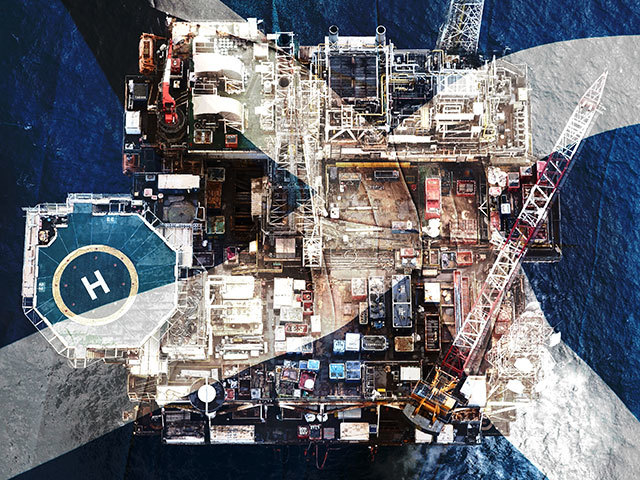
Ten North Sea oil fields could be at the centre of a custody battle if Scotland votes for independence in next year’s referendum.
A firm of leading lawyers has named a string of fields near the Scottish-English border which could become “disputed” if the Union is broken up.
But last night the Scottish Government laid claim to the oil.
According to Maclay Murray and Spens LLP, the question of what waters belong to Scotland is a “complex” one.
A paper published by the firm yesterday says the Fulmer, Auk, Leven, Clyde, Janice, Medwin, Orion, Angus, Fife and Fergus fields could potentially lie on either side of a new maritime border.
“In terms of maritime management issues such as fisheries protection (a devolved issue) Scottish jurisdiction is set out in the Scottish Adjacent Waters Boundaries Order 1999,” the paper states.
“This order specifically does not set the boundaries for oil and gas purposes. These are instead set (further south) by the Civil Jurisdiction (Offshore Activities) Order 1987.
“Henry McLeish (eventual first minister of Scotland) observed, when proposing the 1999 order, that it could have potential implications for the future delimitation of Scottish territorial waters in relation to all maritime resources, not only those currently devolved.
“It is anticipated that the boundary would be a key part of negotiations in the event of Scottish independence, particularly given that several oil fields appear to fall within the disputed territory. These include the Fulmer, Auk, Leven, Clyde, Janice, Medwin, Orion, Angus, Fife and Fergus fields.
“When passed, the 1999 order was deeply opposed by the SNP on the grounds that it represented a reduction in Scotland’s maritime boundaries. However, in its July 2013 report, Maximising the Return from Oil and Gas in an Independent Scotland, the Scottish Government appeared to accept the use of the 1999 boundary as the ‘likely position’ in the event of independence.
“This report does, however, also note that a settlement along the lines of the 1987 boundaries would be more favourable to Scotland.
“Despite the apparent acceptance by both parties of the 1999 boundaries it is not unreasonable to suggest that in the event of Scottish independence this is something which the Scottish Government would look at again with the rest of the UK.”
The pro-UK Better Together group said the oil border issue was “just the latest unanswered question” about independence.
“No doubt Alex Salmond will tell us that he is the only person in the world who has any expertise in complex legal matters like these and that anyone who disagrees with him is simply scaremongering,” a spokesman said.
A Scottish Government spokeswoman said: “The establishment of a single maritime boundary between an independent Scotland and the rest of the UK will be agreed in accordance with well-established international law.
“Recent research by Professor Alex Kemp of Aberdeen University has suggested that around 98.8% of North Sea oil production in the 30 years from 2011 will come from Scotland’s geographical share of the current UK Continental Shelf.
“There are around 24billion barrels of recoverable oil and gas remaining in the North Sea, with a potential wholesale value of up to £1.5trillion. This means that more than half the value of North Sea oil is still to be extracted, which affords Scotland greater choices.”
Recommended for you
